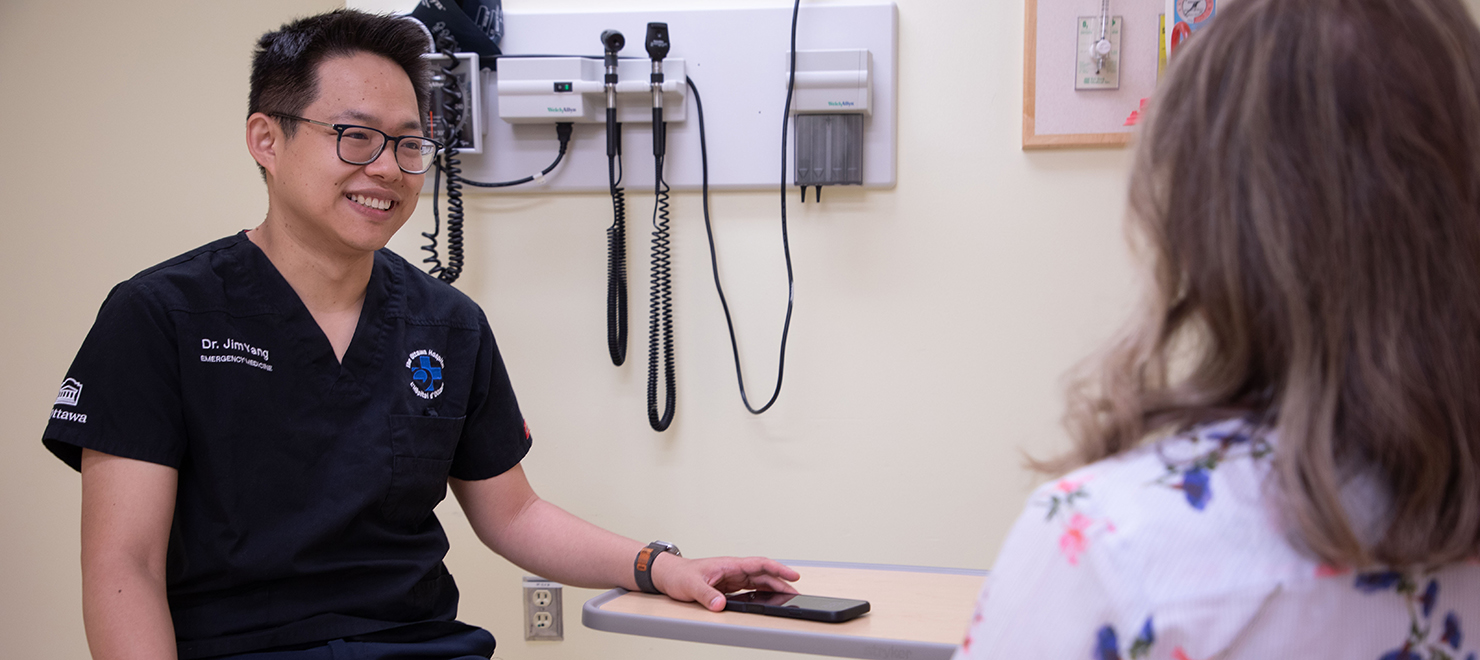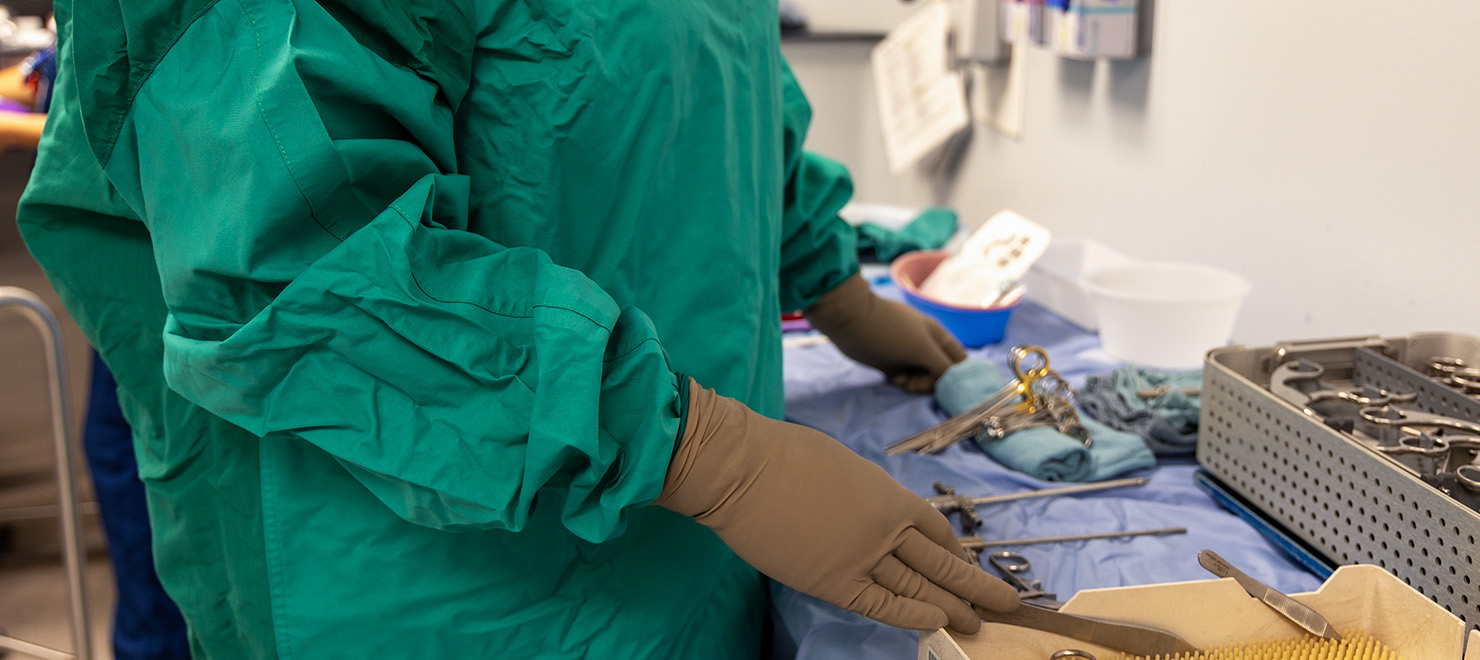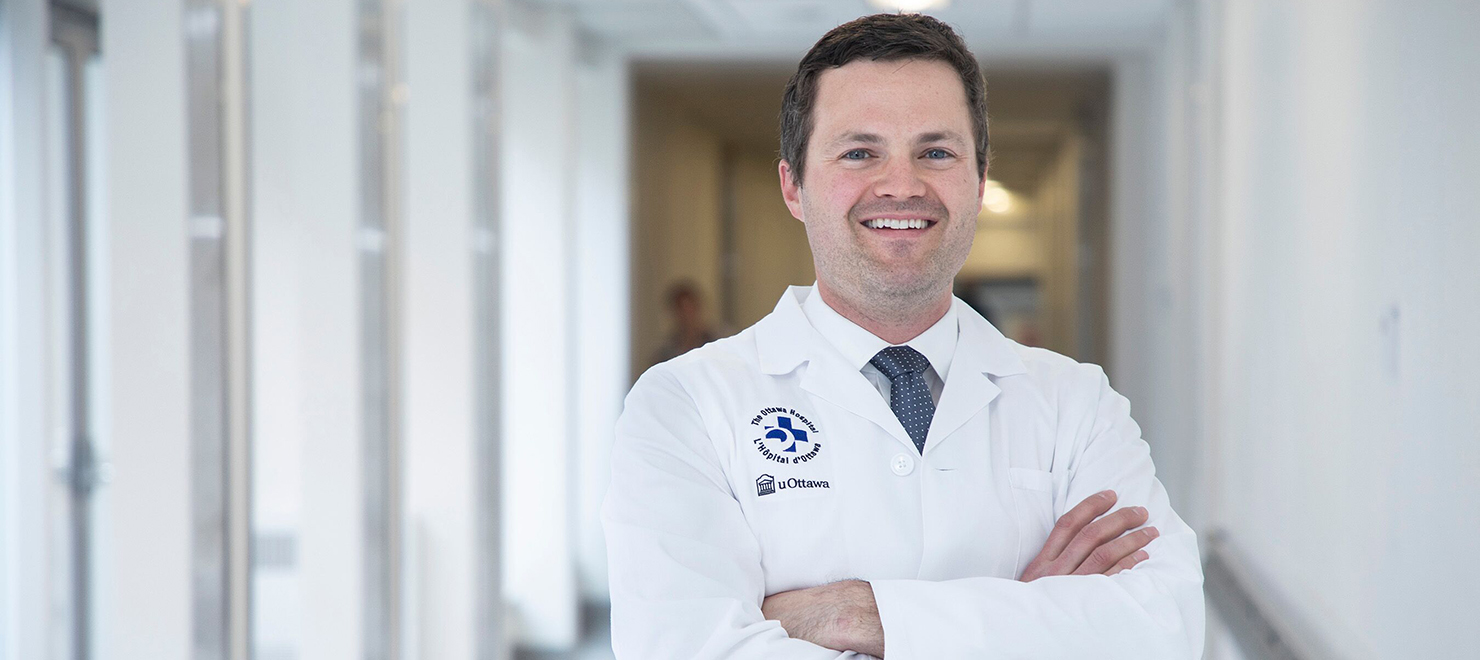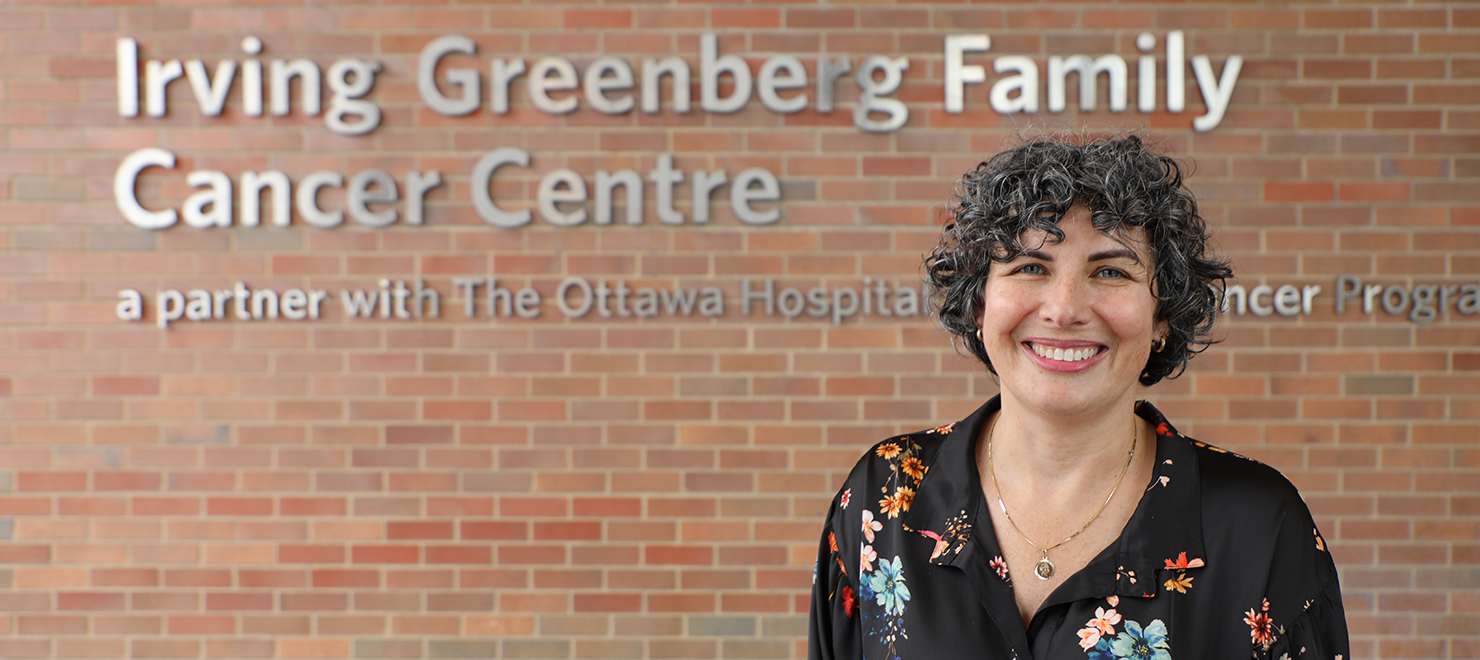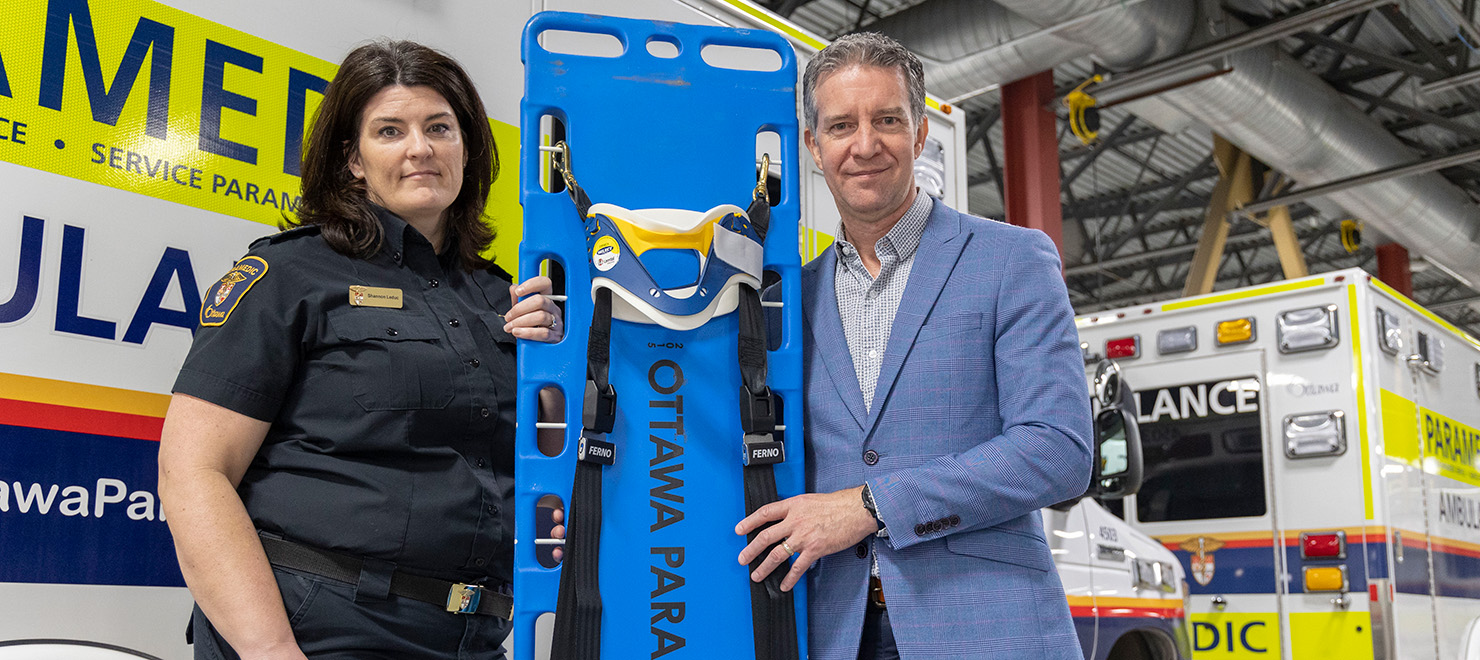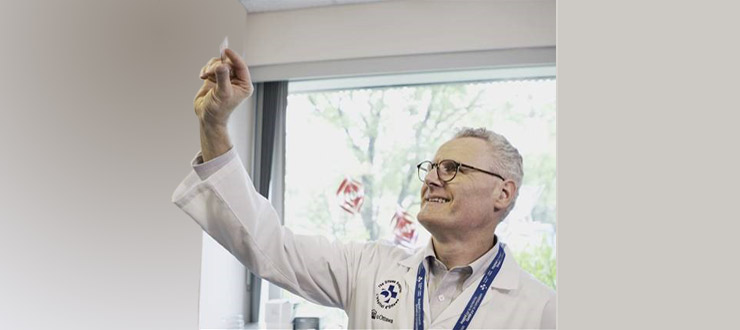
Dr. Michael Schlossmacher helped establish a key concept in Alzheimer’s disease and is now investigating the link between Parkinson’s and the immune system.
As a young medical student in Austria, Michael Schlossmacher and his fellow students had to prepare a report on the possible causes of stomach ulcers. They stuck with all the conventional theories and got a good grade, but the report turned out to be totally wrong. At the time, evidence was just starting to emerge that stomach ulcers could be caused by a bacterium, but the establishment did not want to hear it. It was just too radical.
When the truth came to light, Dr. Schlossmacher resolved that he would never again accept medical dogmas without questioning them and he wouldn’t be afraid to investigate opposing ideas.
This approach has led to many surprising and important discoveries, netting Dr. Schlossmacher the 2017 Grimes Research Career Achievement Award from The Ottawa Hospital.
After completing his medical training, Dr. Schlossmacher obtained a scholarship to visit Harvard University in Boston. With his mentor, Dr. Dennis Selkoe, he studied amyloid-beta protein, which accumulates in the brains of people with Alzheimer’s disease. He discovered that this protein is produced by all cells in the body, a revolutionary finding that is now a cornerstone of our understanding of Alzheimer’s.
In 2006, Dr. Schlossmacher was recruited to The Ottawa Hospital and the University of Ottawa, attracted in part by Ottawa’s collaborative, multi-disciplinary Parkinson’s Research Consortium. He eventually assumed leadership of the hospital’s neuroscience research program and founded the University of Ottawa’s MD-PhD program.
In recent years, Dr. Schlossmacher has pioneered the still-to-be-proven theory that Parkinson’s could be triggered by an infection, particularly in people who are genetically at risk. This is based partly on large, long-running human observational studies and partly on molecular studies of two Parkinson’s-associated genes, called alpha-synuclein and LRRK2.
“If the theory is correct, it would mean Parkinson’s could be triggered by an infection decades before motor symptoms actually develop,” said Dr. Schlossmacher. “We think that select infections in the gut or nose might cause the innate immune system to malfunction, and this could eventually lead to inflammation in the brain and damage of critical nerve cells. If proven correct, this would allow us to predict who may develop Parkinson’s in later years. It would also provide hope for new treatments for this still incurable disease.”
Dr. Schlossmacher and his team have made other important discoveries. For example, they dissected the pathway that links alpha-synuclein and GBA1. This led to a clinical trial of an experimental therapy for Parkinson’s in 2017. His team also developed a spinal fluid test for alpha-synuclein that is now used in all large observational studies of Parkinson’s progression.
Dr. Schlossmacher said his scientific approach is inspired by his patients, rooted in teamwork, and fuelled by a willingness to challenge widespread assumptions, whether they be his own, or someone else’s.
“My mother always taught me to be daring and to reassemble the pieces of a puzzle to see whether we can create a different view, and thus a better understanding of a problem,” said Dr. Schlossmacher. “That’s something I love doing more than anything.”
8 things most people don’t know about Dr. Michael Schlossmacher
- Failed his entrance exam to Grade 1
- In grade school, aspired to be a professional pencil sharpener; in high school to become a professional soccer player (before a knee injury)
- Attended a Jesuit-run boarding school in Austria for eight years
- Was awarded a Fulbright scholarship to visit Harvard University
- Is married to his wife, Elke (who grew up in Hawaii), and has four children
- Participates in many fundraisers for the hospital, including THE RIDE, Dancing with the Docs and Lap the Gats
- Became a proud Canadian citizen in 2016
- Favourite quote: “I know that I know nothing” by Socrates
Dr. Schlossmacher’s research is supported by generous donations to The Ottawa Hospital, particularly through the Bhargava Research Chair in Neurodegeneration. He is also supported by the Canadian Institutes of Health Research, the Ontario Brain Institute, the Michael J. Fox Foundation, Parkinson Canada, the Weston Brain Institute and the Parkinson Research Consortium.

Support patient care and research at
The Ottawa Hospital
You might also like…
Less time charting means more time with patients: How The Ottawa Hospital is using AI to support patient care
“I’m seeing and treating more patients.” Find out how DAX Copilot, a powerful AI assistant, is helping our physicians cut down on paperwork, improve their own well-being and spend more time with patients.
New reusable surgical gowns a step towards greener operating rooms
The Ottawa Hospital is finding safe, innovative ways to reduce medical waste in its operating rooms by using more environmentally sustainable products.
Do you have a surgery coming up? Here are five “prehab” tips to help you recover faster
You’ve probably heard about rehabilitation, but what about “prehabilitation”? Prehab is all about getting your body and mind in top shape before surgery so you can enjoy a smoother, quicker recovery. Discover five essential prehab strategies from researcher Dr. Daniel McIsaac.
By thinking differently, this research team is improving the lives of people with cancer
Taking a different approach to clinical trials, the REthinking Clinical Trials (REaCT) program aims to answer some of the most important and practical questions that affect both patients with cancer and our health-care system. Find out what sets REaCT apart and makes the program so special to participants like Beth.
“Crash testers”: Preparing our health-care teams for real-life emergencies
Swapping patients for manikins, our Simulation Patient Safety Program recreates medical emergencies right in our hospital, allowing our care teams to “crash test” their responses to cardiac arrests, respiratory failures, mass casualty events and more. Dive into this Q&A for a closer look at how this training program enhances patient safety and quality of care.
Does this backboard look comfortable to you?
Imagine this: You’re flat on your back, strapped tight to a rigid backboard, unable to move at all. Fortunately, this is no longer the reality for most low-risk trauma patients when they’re brought to hospital in our province. Find out how researchers at The Ottawa Hospital teamed up with paramedics across Ontario to make the journey a lot more comfortable.


 To reset, hold the Ctrl key, then press 0.
To reset, hold the Ctrl key, then press 0.
